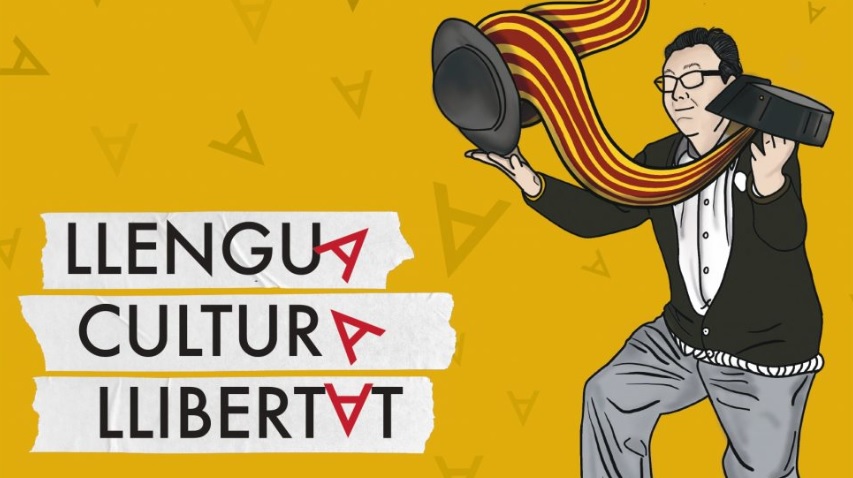Since 1996, the Correllengua has been working towards the promotion of the use of the language and the popular culture of the Catalan-speaking territories, through a playful, festive, participatory, and cross-cutting approach. The CAL (Coordinadora d’Associacions per la Llengua, an NGO that works to promote the linguistic normalization of Catalan) is one of the main entities promoting this movement.
The Correllengua originated in 1993 on the island of Mallorca, inspired by the Korrika in the Basque Country, with the aim of demonstrating the vitality of the Catalan language and fostering its social use. In 1995, it began in the Valencian Country, and from 1996 onwards, the CAL took on the commitment to bring the movement to the rest of the Catalan-speaking territories.
The CAL coordinates the Correllengua in Catalonia and Northern Catalonia, in coordination with the entities in each territory, while in the Valencian Country, it is coordinated by Acció Cultural del País Valencià (ACPV). On the island of Mallorca, the Correllengua is not celebrated every year; instead, it alternates with the Acampallengua. For some years now, coordination in Mallorca has been carried out by the organization Joves de Mallorca per la Llengua (Youth of Mallorca for the Language).”
Related article: Elite Taxi demands B2 Catalan proficiency for taxi drivers
The Correllengua is structured around the lighting of the Flame, the symbolic and cohesive element of this entire initiative, as is also the reading of the Correllengua Manifesto. In addition, all kinds of playful, festive, educational, and advocacy activities are carried out: talks, round tables, radio and television programs, music and traditional dances, gastronomic events, processions, street theater, concerts… with the aim of showcasing the vitality of our language and culture to all people, whether newcomers or not, who are not yet familiar with it. At the same time, it aims to involve everyone in its defense. Ultimately, it’s a festive and open way to celebrate Catalan identity in the streets, without complexes and positively.
Furthermore, the Correllengua has always wanted to recognize and pay tribute to the life and work of writers, artists, or activists who have distinguished themselves for their worth and also for their commitment to Catalan language and culture.


